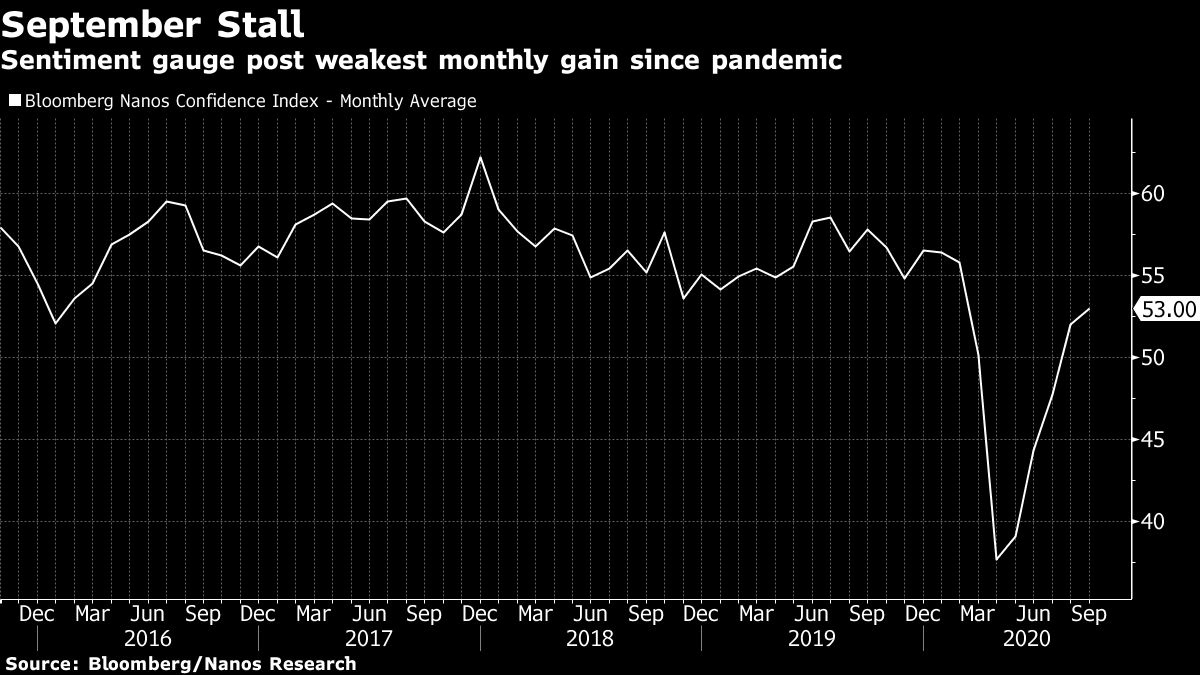Oct 5, 2020
Consumer sentiment in Canada stalls; 51% say economy will weaken
, Bloomberg News

Canadian consumer confidence recorded its smallest monthly gain since the start of the pandemic, another sign the swift economic recovery of summer is petering out.
The Bloomberg Nanos Canadian Confidence Index, a composite measure of financial health and economic expectations, ended September at 53.1, little changed from 52.7 at the end of August. It had fallen to a record low of 37 in April, from about 56 just before the pandemic.
The slowdown of consumer confidence has been predicted by economists who say the fall and winter months will bring a slower recuperation of the economy.
The bright spot in confidence has been expectations for higher home prices. That’s helped to offset declining sentiment around the broader outlook, as rising virus cases prompt local authorities to impose new social distancing measures.
Every week, Nanos Research surveys 250 Canadians for their views on personal finances, job security and their outlook for the economy and real estate prices. Bloomberg publishes four-week rolling averages of the 1,000 responses.

September Highlights
- Optimism about the economic outlook is dwindling. The share of Canadians who expect the economy will strengthen over the next six months fell to 18.3 per cent at the end of last month, down from 23 per cent at the end of August. About 51 per cent of respondents in polling said the economy will weaken, the highest share in two months
- Canadians, however, are bullish about housing. About 44 per cent of respondents expect the value of real estate in their neighborhood to rise over the next six months. That’s up from about 40 per cent a month ago, and one of the strongest readings in the past seven years
- The share of Canadians who are at least somewhat concerned about job security was about 14 per cent at the end of September, little changed from a month earlier. That number peaked in April at about 25 per cent
- There was a small decline last month in the number of Canadians who say their finances have worsened over the past year. About 28 per cent of Canadians say their finances have deteriorated, well below readings of more than 40 per cent at the height of the crisis, but still slightly higher than historical averages for the question

